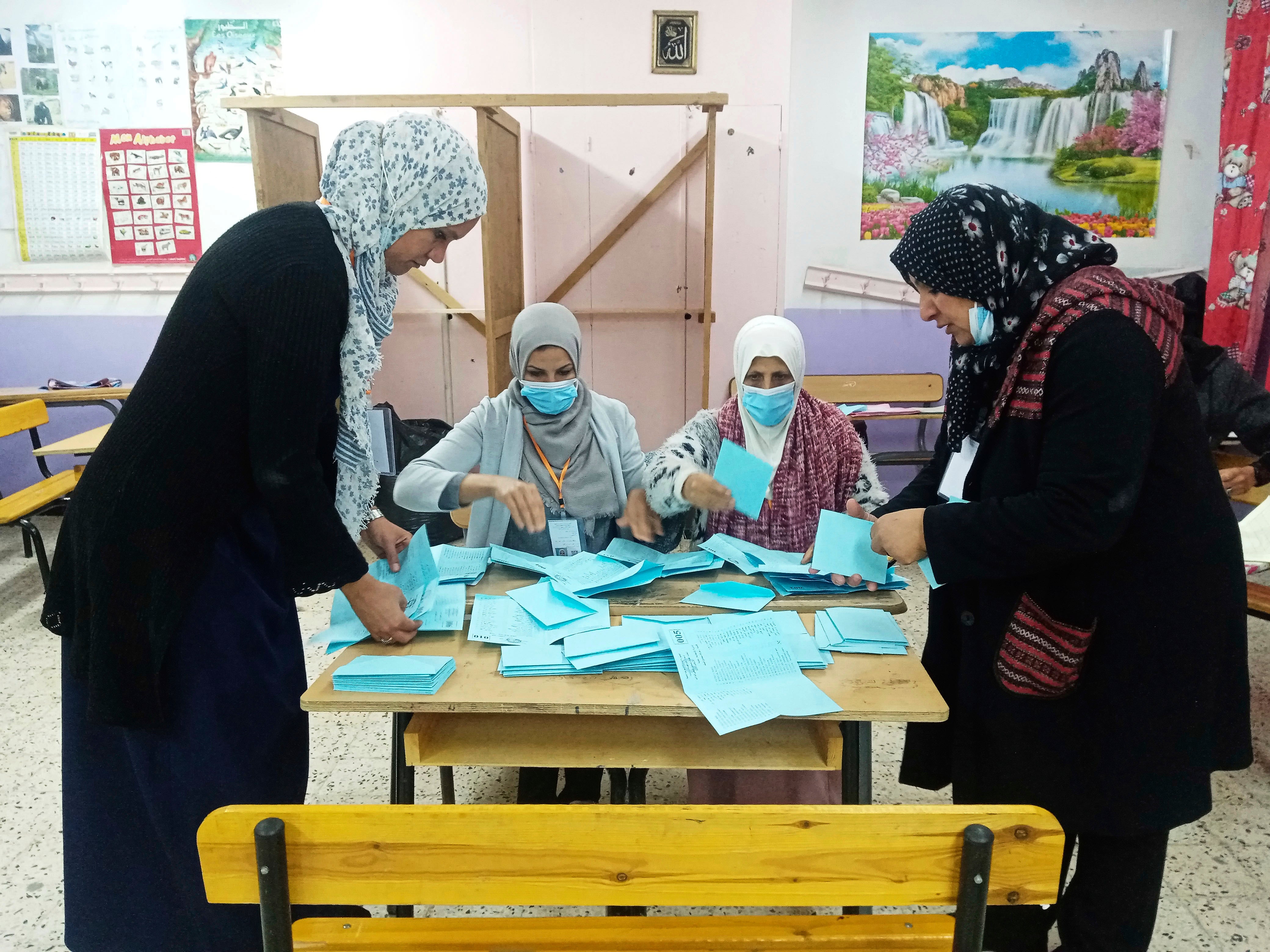Algeria's top parties keep power in local elections
The parties of Algeria’s ruling majority dominated local and regional elections while Islamist parties saw their support diminish

Your support helps us to tell the story
From reproductive rights to climate change to Big Tech, The Independent is on the ground when the story is developing. Whether it's investigating the financials of Elon Musk's pro-Trump PAC or producing our latest documentary, 'The A Word', which shines a light on the American women fighting for reproductive rights, we know how important it is to parse out the facts from the messaging.
At such a critical moment in US history, we need reporters on the ground. Your donation allows us to keep sending journalists to speak to both sides of the story.
The Independent is trusted by Americans across the entire political spectrum. And unlike many other quality news outlets, we choose not to lock Americans out of our reporting and analysis with paywalls. We believe quality journalism should be available to everyone, paid for by those who can afford it.
Your support makes all the difference.The parties behind the Algerian president's governing majority dominated local and regional elections, while Islamist parties saw their support diminish, according to official results.
The head of the election authority, Mohamed Charfi, announced the results Tuesday evening after Saturday’s elections. The vote came amid widespread worry and frustration over rising prices for basic goods, housing and health care.
The long-ruling FLN party won the most seats in town halls around Africa’s largest country, followed by allied party RND. Support for Islamist parties El Bina and the MSP fell sharply compared to June legislative elections. The FFS, a party of the pro-democracy hirak protest movement that pushed out longtime President Abdelaziz Bouteflika in 2019, was far behind.
The FLN and RND also won the most seats in Algeria’s 58 regional assemblies. But no party won an absolute majority, so they will have to negotiate to form majority coalitions.
Widespread disillusionment kept turnout low, at 34-36%, but that was still higher than the 23% participation rate in the June legislative elections.
President Abdelmadjid Tebboune framed the voting as the final step in a process of renewing politics after Bouteflika’s ouster, following presidential and legislative elections. However the FLN party remains dominant, and pro-democracy activists say the political changes since 2019 have been only cosmetic and failed to make Algerian politics more open and fair.